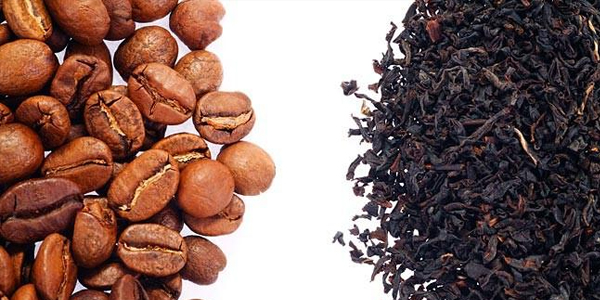Final Presentation
SOS EVENT COORDINATION AND COMMODIFICATION 3%2F14%2F17
Self Evaluation
This was my first experience with a Student-Originated-Studies program organized around a weekly day of class, a day available to meet one-on-one with the faculty, and the rest of the week for my own in-program Individual Learning Contract project. Through reading program texts such as Tompkins’, Racial Indigestion, and bell hooks’, Eating the Other: Desire and Resistance, I was able to gain a greater understanding of how the modern day capitalist economy was built on and continues to thrive on, the exploitation of racialized and gendered labor, how eating practices embody racial and sexual desires, the dire need to reform culturally enforced oppressive food practices, and how when we visually analyse food ads they correlate to the literary analysis of enslavement histories. While reading The Secret Financial Life of Food: From Commodities Markets to Supermarkets, by Kara Newman, I learned how economic value was determined for food items. I hope to leverage this knowledge when exploring modes in which people and businesses are reevaluating the economic value of goods and services. Having been introduced to so many complexities surrounding consumption, I will continue to work to reimagine how we eat in ways that are helpful in reforming problematic food systems.
Reading Kyla Wazana Tompkins’ Racial Indigestion: Eating Bodies in the 19th Century and bell hooks’ Eating the Other: Desire and Resistance were the two seminar texts that I found to be the most thought provoking as well as the most challenging to read. Tompkins and hooks use the term “the other” to define anyone not a part of the imperialist white supremacist capitalist patriarchy, which is considered to be the hegemonic culture of the world. Both of these authors highlight how commodity culture exploits “the other” for new pleasure and allows for whites to assert their power within their intimate relationship with “the other”. The consumption of others’ culture allows for the white capitalists to expand their palate, viewing the other as an indulgence, while “the other” eats to survive. In my weekly seminar preparation writing, I explored how gender and racial identities are influenced by the dominant power insertion of imperialized white supremacist capitalism. My most successful response was to chapter 5 of Tompkins, which I put into conversation with Eating the Other by hooks and a contemporary news item about how Instagram-loving foodies are perpetuating racist stereotypes about ethnic dishes.
Weekly tasting labs that brought the context from seminar texts into conversation with the body helped me to gain a deeper understanding of what Tompkins refers to as “critical eating studies”. Annie Sloan provided a thoughtful examination of how we ingest beyond mindless consumption. Kotomi’s tea labs allowed for me to understand the chemistry on ingestion, as well as allowing for me to curate an intimate relationship with tea.
Bringing the body into academia this quarter through our tasting labs felt appropriate and necessary while reading Tompkins and Newman. Through Annie’s labs which related mostly to Racial Indigestion and Kotomi’s educational tea tasting labs we were forced to think of ourselves and our eating as more than just consuming, an act that in itself challenges the nature of current capitalist commodity culture. During Annie’s corn tasting lab we sat eating various preparations of corn (corn flakes, polenta, corn bread, bourbon, and high fructose corn syrup) while watching Michael Twitty’s “Black Corn” in which he explores corn’s designation as slave food during Antebellum America and the importance and varieties of corn that have been so essential to indigenous peoples across the Americas for millennia. In the past hundred years corn has been turned into a staple commodity in the agricultural industry, but in turn varieties so essential to native diets and culture have dwindled.
Tompkins’s argument for “critical eating studies” rather than “food studies” highlighted this SOS’s focus on alternatives to commodification processes because I learned to think of the mouth as a site of eating and talking with regard to a body desiring embodiment rather than regarding myself and others merely as consumers. Our weekly Tasting Labs, which included experiments with foods related to themes in Racial Indigestion as well as weekly tea tastings that I experienced as ceremonies, added lots to my learning experience. For example, when we
Bringing the body into academia this quarter through our tasting labs felt appropriate and necessary while reading Tompkins and Newman. Through Annie’s labs which related mostly to Racial Indigestion and Kotomi’s educational tea tasting labs we were forced to think of ourselves and our eating as more than just consuming, an act that in itself challenges the nature of current capitalist commodity culture. During Annie’s corn tasting lab we sat eating various preparations of corn (corn flakes, polenta, corn bread, bourbon, and high fructose corn syrup) while watching Michael Twitty’s “Black Corn” in which he explores corn’s designation as slave food during Antebellum America and the importance and varieties of corn that have been so essential to indigenous peoples across the Americas for millennia. In the past hundred years corn has been turned into a staple commodity in the agricultural industry, but in turn varieties so essential to native diets and culture have dwindled.
The past ten weeks have challenged me in a multitude of ways in which have invoked significant academic growth and personal aspiration to pursue a career in event coordination. This quarter I had the opportunity of doing an internship with Evergreen’s Special Event Manager, Correan Barker, as his first ever Special Events Intern. I was able to gain skills and knowledge that will be helpful in mapping out my future and following a career in event coordination. Learning how to curate a space to take an ephemeral moment and to profoundly extend it through its legacy was particularly inspiring. Having the opportunity to work with a mentor who is willing to provide such a wealth of knowledge while maintaining high standards has been a wonderful learning experience for me.
I am looking forward to continuing my Special Events internship with Correan next quarter as well as working to lay the foundations to enter into the world of working professionally as an event coordinator. Next quarter I will begin to make preparations for an Organic Farm to Table dinner that I will be putting on with fellow students in the fall. I will continue to research ways in which to make a positive influence in an era where systemic racism is at large and ecological practices are being challenged. I hope to find ways to further my understanding of ways in which perceptions of consumption can be reshaped to advocate ethical eating practices and modes of production. I feel this quarter was very successful for me, and I am very proud of the work I’ve accomplished. Programs like this remind me why I originally wanted to come to Evergreen. It’s tremendously rewarding to have the opportunity to work with faculty that supports and believes in your academic interests.
ILC DESCRIPTION
I will be exploring how ethical and ecologically sustainable practices can be promoted within business models, and how politics transform an agricultural and social landscape. I will also largely be focusing on acquiring the skills and knowledge needed to enter into a career field of event coordination. I will be completing a Special Events Internship with Evergreen’s Special Event Manager Correan Barker. This will include extensive planning and programming for fundraising events on and off campus.
Header Image Credit: https://i.ytimg.com/vi/p0QKq2F56Us/maxresdefault.jpg



